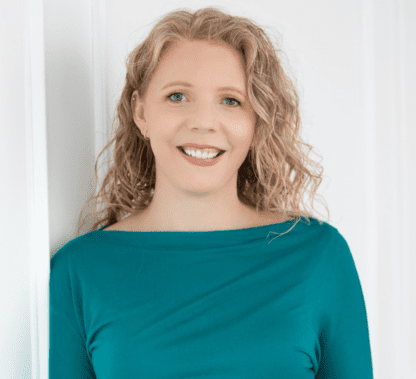In honor of Fair Housing Month, we’re talking with Laurie Benner, Associate Vice President of Programs for the National Fair Housing Alliance about how far we’ve come, and how much work still needs to be done.
April,1968 is a historic month for the real estate industry, not to mention our nation as a whole. It marks the passage of Fair Housing Act, which codified into law prohibitions against housing discrimination and segregation. To commemorate this critical piece of legislation, April is recognized as Fair Housing Month, a chance to demonstrate a commitment to expanding equal access to housing for all.
Unfortunately, the real estate industry—particularly the National Association of REALTORS®—has not always been at the forefront of this issue. Times have changed, however, and though discrimination in our industry is indeed real and ongoing, large strides have been made. But there is still far more to accomplish. We all have the opportunity to be part of the solution, affirming we are working to build thriving, inclusive communities. Today and every day, we should discuss the key components of fair housing, and how we can all do our part.
A Snapshot of Homebuying in the US
- According to a NAR report, even in 2022 not all families have the same opportunities for homeownership.
- The homeownership rate for Black households is lower right now than it was in 2010. However, the rate of homeownership for Black households rose by 1.4% in 2020, which can be considered a silver lining. Find more details in the SHIBA Report, created by the National Association of Real Estate Brokers (NAREB).
- The rate of homeownership for Hispanic Americans rose by 3%, pushing the rate above 51%, making it the highest in history. Find more information from the National Association of Hispanic Real Estate Professionals (NAHREP) in their State of Hispanic Home Ownership Report.
- LGBTQ+ Real Estate Alliance (The Alliance) shares that the LGBTQ+ homeownership rate of 49.8% is far below the U.S. average of 65.8%. You can find more information and stories from the community here.
- Did you know? The buying power of the Asian American community is said to exceed $1 trillion with a 33% increase by 2022. Learn more from AREAA’s State of Asia America report here.
While these statistics don’t cover all groups in the US, it gives a small snapshot of the diverse realities facing specific communities.
The State of Fair Housing in 2022
We spoke with Laurie Benner, Associate Vice President of Programs for the National Fair Housing Alliance (NFHA) about efforts to expand Fair Housing, appraisal bias, and actions we can all take to help create a more equitable real estate industry.
Q: The National Fair Housing Alliance is dedicated to eliminating housing discrimination, but that goes beyond just investigating complaints. How else is NFHA working to expand fair and affordable housing opportunities?
In the real estate industry, we tend to think about fair housing through a strictly discrimination-focused lens. At NFHA, we consider fair housing to be a broader civil rights issue. Where you live determines your access, or lack of access, to financial institutions, technology, healthcare, transportation, food, education, and employment. It further determines personal and family wealth. When people are offered equitable resources and opportunities to secure safe, affordable housing, they have an opportunity to prosper.
The word “equitable” is important here. There are vast disparities in access to resources in White and non-White communities. Those are the foundation of NFHA’s efforts – ensuring that all people and communities thrive. NFHA uses many different avenues to achieve our goals; education and outreach, member services, public policy and advocacy, housing and community development, tech equity, enforcement and litigation, and consulting and compliance programs.
Q: What are some of the hot topic fair housing issues NFHA is focusing on right now?
Two of our innovative programs include Keys Unlock Dreams (KUDI) and Tech Equity (TEI). Keys Unlock Dreams is a three-year 10-city initiative designed to close the racial homeownership and wealth gaps. TEI is a multi-faceted effort designed to eliminate bias in algorithmic-based systems used in housing and financial services.
We also recently released a groundbreaking report on appraisal bias in housing, a redlining toolkit to evaluate fair access to credit, and reached a $53 million dollar agreement in a lawsuit against Fannie Mae for its treatment of foreclosures post-2008. Racial disparities in housing and financial access, lack of representation in the real estate and housing industries, and equitable distribution of resources in communities of color are all issues we’re focusing on now.
Q: Staying educated on the topic of fair housing and keeping oneself accountable is so important as a real estate professional. Can you share any resources or ways that one can stay informed with the latest data?
Education is the keyword. Not only education on local, state, and national fair housing laws, but education on the history of housing in the United States. To know why organizations are focusing on disparities and racial matters, one needs to be aware of the industry’s participation in creating those disparities. Inequality lingers. The impact of decades and centuries of laws and policies designed to segregate and deny opportunity to people of color were not magically erased by the passage of the Fair Housing Act. Communities were destroyed and billions of dollars of wealth were lost.
Engaging with local and state Realtor associations and NAR, local chapters of diverse associations (NAREB, NAHREP, AREAA, the LGBTQ+ Real Estate Alliance), human rights commissions, fair housing centers, and others are great ways to stay up to date. NFHA is a membership organization and we’re working to create a membership category specifically for industry professionals to tailor education and communications for real estate agents, lenders, appraisers, and any other professional involved in real estate transactions.
At a minimum, I encourage everyone to sign up for our email list here.
Finally, accountability is important. Real estate is a relationship-based business. I realize it can be uncomfortable to submit a violation complaint against a peer, but the process is there for a reason. Bad behavior left unchecked not only perpetuates discrimination, but it tarnishes the entire profession. Absolutely no one wants to be connected to a brokerage or association found to be guilty of unethical or illegal practices. Obviously, our preference is to engage in education and early identification and correction of problems, but I think we’ll see an increase in investigation and testing in the coming years.
Q: Can you share a personal experience where you supported the building of an inclusive community?
I try my very best to walk the talk both personally and professionally. Although diversity, equity, and inclusion, fair housing, and housing opportunity are all distinct topics, there are many common threads. I live in a zip code that consistently tops the list in Maryland’s annual Hate Bias Report. Heartbreakingly, many of the reports come from schools. A group of community members joined forces to engage in advocacy, events, education, and positive demonstrations to create awareness and support diverse community members, particularly people of color and LGBTQ+ individuals. No student should feel unsafe or unwelcome at school. We participate in community events and are working with the school to create a no-tolerance environment for students who bully and teachers and staff who are complicit. The goal is to create a safe and inclusive community in schools, employment, public places, and yes, housing. I challenge everyone reading this to get involved at a local level to support their historically excluded neighbors.
More Resources:
For more information and resources, visit National Fair Housing Alliance (NFHA).
We also invite you to join us on April 26th from 3-4 PM ET for a virtual screening of the award-winning, animated short film, Segregated By Design (www.segregatedbydesign.com). After the film, stay tuned for a dynamic discussion on the film, its core concepts, and the continued fight for fair housing. Register here.
Now it’s your turn
Let us know what you think! What has your community done to address fair housing? Does the data we’ve cited in this blog align with what you’re seeing in the field? We want to hear your perspective.
Keep your finger on the real estate pulse with more articles, videos, and insights from Realogy.
*Please note this document was published prior to Realogy’s rebrand to Anywhere Real Estate Inc. on June 9, 2022.
Featured Contributor:

Laurie Benner
Laurie Benner’s LinkedIn Profile Laurie Benner is responsible for developing, implementing, managing, and evaluating innovative national programs designed to advance research, programs, and policies that provide equitable access to homeownership, housing, economic, and other opportunities. Her primary focus is to spearhead the Keys Unlock Dreams initiative – a 10-city program aimed at expanding affordable and fair housing options; increasing the homeownership rate and related benefits for people and communities of color; preventing an unbalanced recovery from the COVID-19 pandemic; and closing the racial wealth and homeownership gaps.

